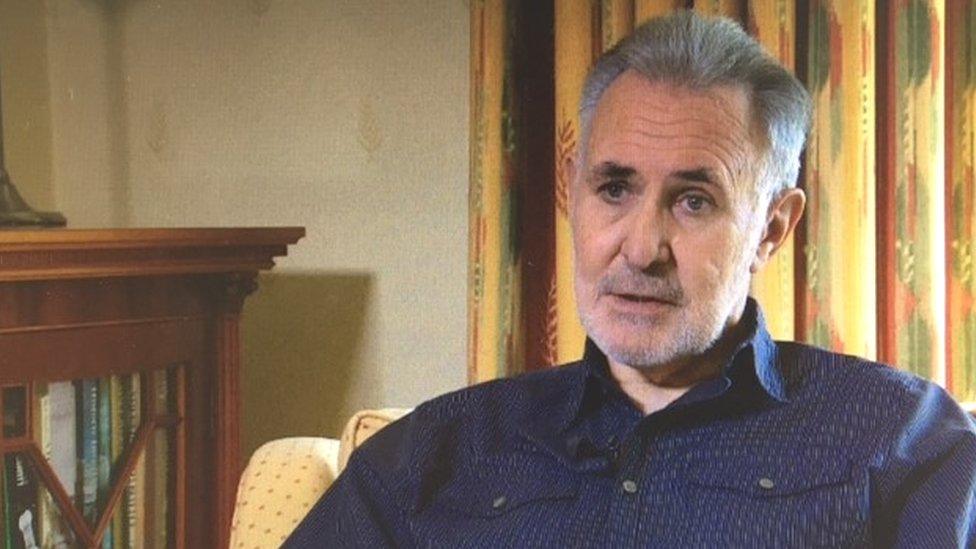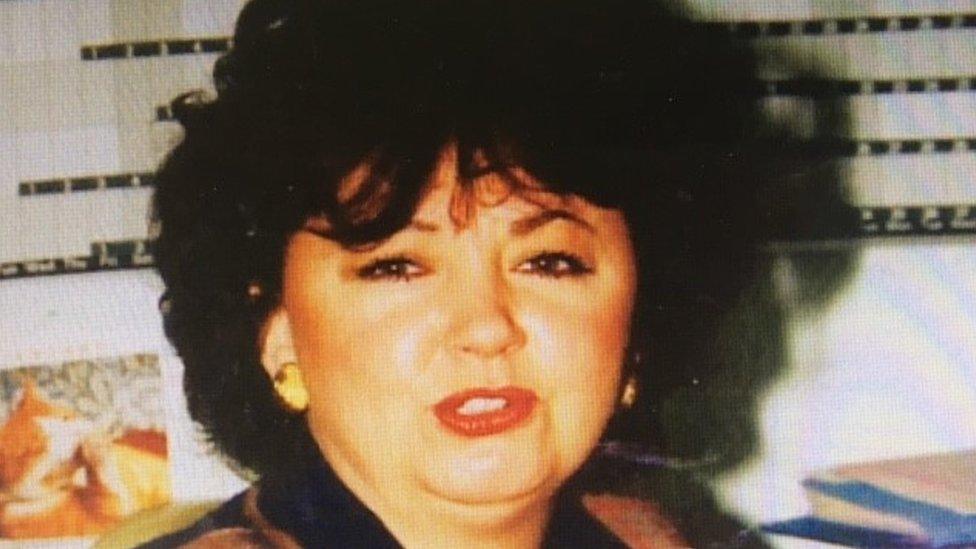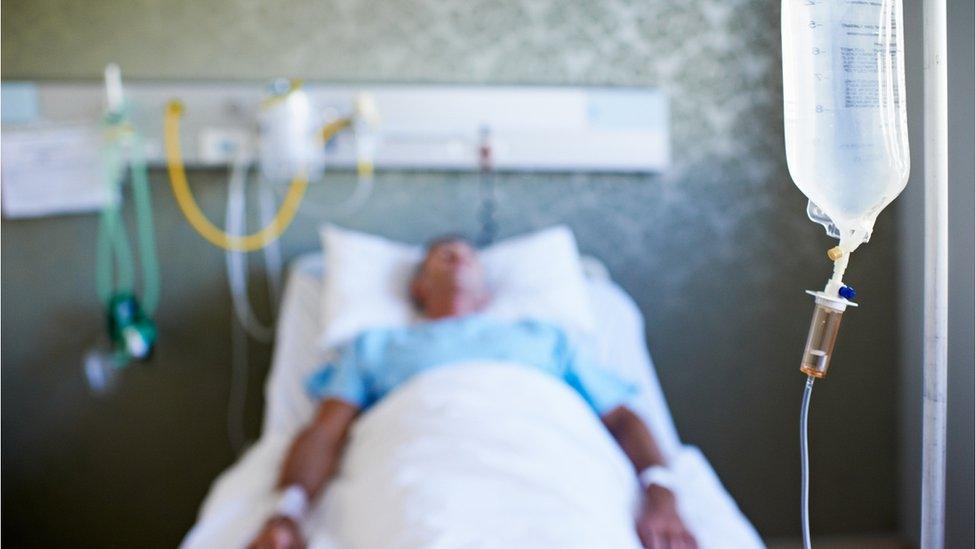Sepsis awareness campaigner reacts to health board responses
- Published

Mr Robertson said he was "astonished" at some of the responses from NHS boards
A widower campaigning to raise public awareness of sepsis has said he is "astonished" some health boards are wary that the move might cause "alarm".
Jim Robertson, from Glasgow, who lost his wife to sepsis last year, is petitioning the Scottish Parliament, external to back a national awareness campaign.
Health boards are actively working on reducing sepsis, but some are wary of such an initiative.
One said it could lead to "unnecessary" attendance at GP surgeries.
Sepsis kills about 44,000 people every year in the UK - more than breast, bowel and prostate cancer combined.
It is caused when the body's immune system overreacts to infection.
Mr Robertson's wife Liz died in hospital from sepsis in February last year at the age of 61.
He said: "It still haunts me. In the last week, I would say, of Liz's life she was delirious, she was nauseous, she was constantly vomiting, she didn't know where she lived."


What is sepsis?
Sepsis is triggered by infections, but is actually a problem with our own immune system going into overdrive.
It starts with an infection that can come from anywhere - even a contaminated cut or insect bite.
Normally, your immune system kicks in to fight the infection and stop it spreading.
But if the infection manages to spread quickly round the body, then the immune system will launch a massive immune response to fight it.
This can also be a problem as the immune response can have catastrophic effects on the body, leading to septic shock, organ failure and even death.

Mr Robertson believes she could still be alive if she had been diagnosed sooner.
He said the first time he heard the word sepsis was after his wife's post mortem.
"I didn't really know anything about it at all, apart from that it was blood poisoning and I discovered there was a very, very low awareness of sepsis and the size of sepsis in Scotland - in fact in the whole of the UK."

Mr Robertson's wife Liz died from sepsis last year
Mr Robertson said he was "astonished" at some of the responses from NHS boards to his petition lodged with the Scottish Parliament.
He added: "Some, in fact, have come back with a response that if we make people aware of the early signs of sepsis, then it might cause a greater workload for our GPs, so they are not that keen, which I find very surprising and disappointing."
'Unintended consequences'
In its written submission, NHS Dumfries and Galloway said a public campaign specifically about sepsis "may actually cause alarm and increase unnecessary attendance at GP practices or A&E departments".
NHS Forth Valley's submission read: "It is necessary to consider the unintended consequences of inappropriately increasing public awareness."
Other boards including Tayside, Grampian and Greater Glasgow and Clyde all said they would welcome a national public awareness campaign - something experts believe would save lives.
Prof Kevin Rooney, a consultant in intensive care medicine at the Royal Alexandra Hospital in Paisley, said: "I would definitely support an awareness campaign with the public.
"We have been working with health care professionals to date, but in the end we need you to help us.
"For every hour's delay in antibiotics, your mortality from sepsis increases by almost 8%, so if we can get people in the community to the hospitals quicker, that will surely make a difference."
Early detection
The Scottish government said it would support any campaign to raise awareness of sepsis.
A spokesman added: "Our Scottish Patient Safety Programme is a unique national programme recognised as setting the benchmark for systemic approaches to health care improvement, including the treatment of sepsis.
"We have a long-standing commitment to raising awareness of sepsis, involving working closely with NHS Scotland and the Fiona Elizabeth Agnew Trust, supporting the Sock it to Sepsis campaign and promoting and participating in World Sepsis Day.
"We recognise that focusing on early identification of sepsis is critical - and treatment within one hour of recognition has led to mortality rates among those identified at this stage falling by 21% since 2012."
- Published10 March 2017

- Published29 November 2016
